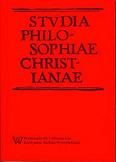Źródła filozoficzne "Doktora Faustusa" Thomasa Manna
Philosophical sources of "Doctor Faustus" by Thomas Mann
Author(s): Łukasz MichałowiczSubject(s): Philosophy
Published by: Wydawnictwo Naukowe Uniwersytetu Kardynała Stefana Wyszyńskiego w Warszawie
Keywords: enlightenment; method; dialectics; music; myth; Mann Thomas; Doctor Faustus; Adorno Theodor W.; Schönberg Arnold; Frankfurt School
Summary/Abstract: Thomas Mann’s novel Doctor Faustus contains many philosophical streams which play an auxiliary role to the main axis of the philosophical analysis. The fact that not only was T. W. Adorno the conceptual co-author of Mann’s work, but that the philosopher’s texts were also used, including the first part of his Philosophy of Modern Music, allows us to adopt the interpretative perspective of the novel that falls within the philosophy of the Frankfurt School. Such an interpretation does not only depict Dialectics of Enlightment by M.Horkheimer and T.W.Adorno as the basis for the Philosophy of Modern Music itself, but also reveals the way its ideas were used in Mann’s novel. However, deciphering the so-called “magic square” and its components that constitute the elements of Arnold Schönberg’s approach to composition, results in the deconstruction of the novel and enables one to draw the conclusion that Adorno also introduced Mann to the criticism of the Hegel system and the emerging concept of Negative Dialectics. Demonstrating the above mentioned sources leads to a new approach in the interpretation of the novel, as well as to an indication of the debatable solutions that Thomas Mann attempted to employ, based on the philosophies he made of use of.
Journal: Studia Philosophiae Christianae
- Issue Year: 48/2012
- Issue No: 2
- Page Range: 65-86
- Page Count: 22
- Language: Polish

